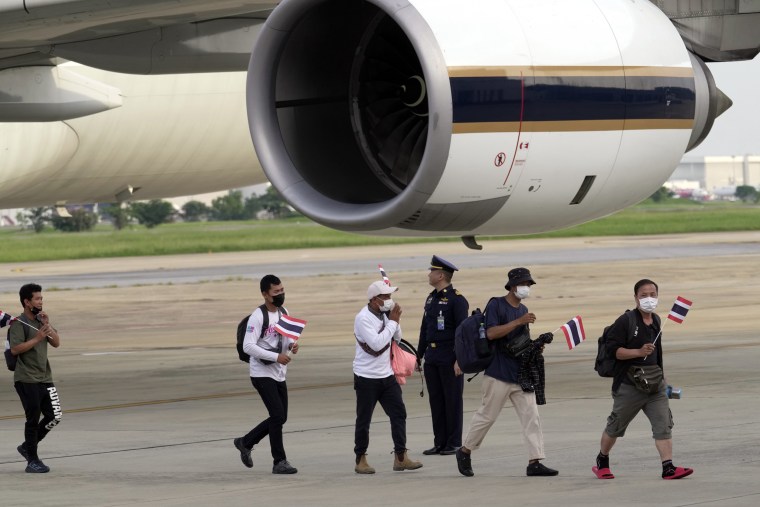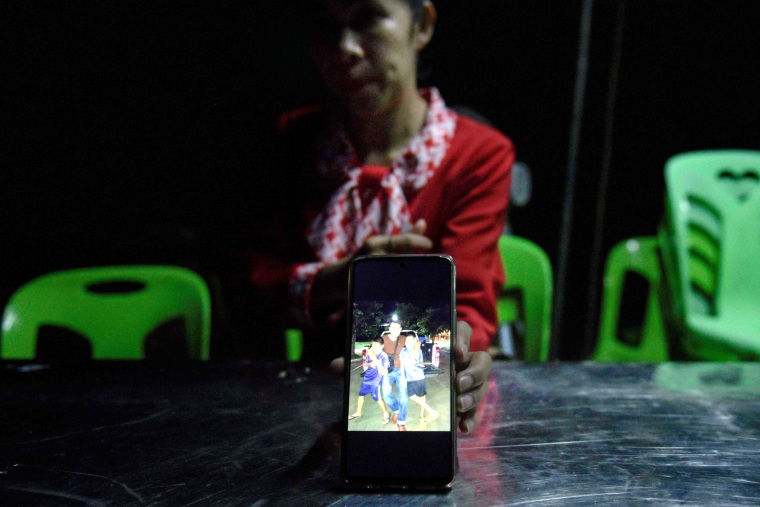BANGKOK — Kanjana Patee had worried about her brother, a Thai farmworker in Israel, long before its current war with Hamas.
Kiattisak Patee, 35, was approaching the end of his five-year contract at a chicken farm near the border with the Gaza Strip, and Kanjana said he had told his family his employer wanted to extend it.
Alarmed by his stories of hiding during the fighting and explosions that regularly took place along the border, Kanjana and her mother had tried to persuade Kiattisak to return to Thailand.
But he told them he wanted to stay in Israel and work so he could send money home for a house his father was building in Udon Thani province, where the family planned to reunite next year.
Kanjana now fears her brother may be among the hostages seized by Hamas in its Oct. 7 terrorist attacks and taken back to Gaza, the blockaded Palestinian enclave controlled by the militant group.
The Israeli government said Wednesday that of the estimated 220 hostages taken at the time, 138 had foreign passports, including 54 Thais, 15 Argentinians, 12 Americans, 12 Germans, six French and six Russians.
Thailand also had the highest combined number of foreign nationals killed and missing at 45, followed by the United States at 39, Russia and Ukraine at 27 each, and France at 24.
The Thai foreign ministry said Friday that it was working to verify the number of hostages with Israeli officials, and that the 54 figure might also include people who are dead or missing.

About 30,000 Thais work in Israel, mostly in agriculture, making them one of the country’s biggest sources of foreign labor. As of Friday, more than 4,700 of them had been repatriated to Thailand, according to the Thai foreign ministry.
When she heard about the Hamas attacks, Kanjana said, she called Kiattisak but there was no answer. He worked in Kibbutz Re’im, near the music festival where 260 people were killed.
“I thought he might be hiding in the forest or in the field, and that was why I could not reach him,” said Kanjana, 29, who last spoke to her brother a few days before the attacks.
In search of information, she posted about him on social media, where a commenter shared a list of Thais believed to have been taken hostage. Kiattisak’s name was at the top.

A photo purportedly of Thai hostages that has since circulated shows people whom Kiattisak knew and worked with but not Kiattisak himself.
“My mom and I cry often, we are so worried about him,” Kanjana said. “We try calling the embassy, but we have not heard anything from officials about my brother’s status.”
The toll of the war on Thai workers in Israel has generated tensions between the two countries. Rumors that Israeli employers were delaying payments until Nov. 10 so that Thai workers would be compelled to stay led to criticism from Prime Minister Srettha Thavisin.
“I want my brother and sister migrant workers who are there to think carefully that if you stay, would it be worth it?” he said.
Speaking in Parliament on Thursday, he said he was concerned that Thai workers were choosing to stay in Israel for financial reasons, despite the intensifying conflict.
“We have to improve the state of our economy here … so Thais don’t have to risk their lives,” he said, according to Reuters.
The Israeli Embassy in Thailand said this week that it was doing its best to ensure the fair treatment of Thai workers. It said there were no restrictions preventing workers from returning home, but that it was offering incentives for them to continue working.
The Ministry of Agriculture has agreed to immediately extend Thai work visas for a sixth year and perhaps a seventh, and has allocated almost $5 million in compensation, including monthly grants to foreign workers along the Gaza border until the end of the year. It has also set up an additional 430 security shelters in agricultural areas across Israel.
“We deeply value the commitment of Thai workers in preserving Israel’s food supply chain during these turbulent times,” Orna Sagiv, the Israeli ambassador to Thailand, said in a statement. “Their dedication ensures continued food security for all residents of the State of Israel.”
In the meantime, Kanjana says she and her mother are “worried sick” about Kiattisak.
“I think the war is bad for everyone. People get hurt and killed and no one wins anything,” she said. “I hope my brother is alive and doing OK, and I hope he can be released and return home to us safely.”



